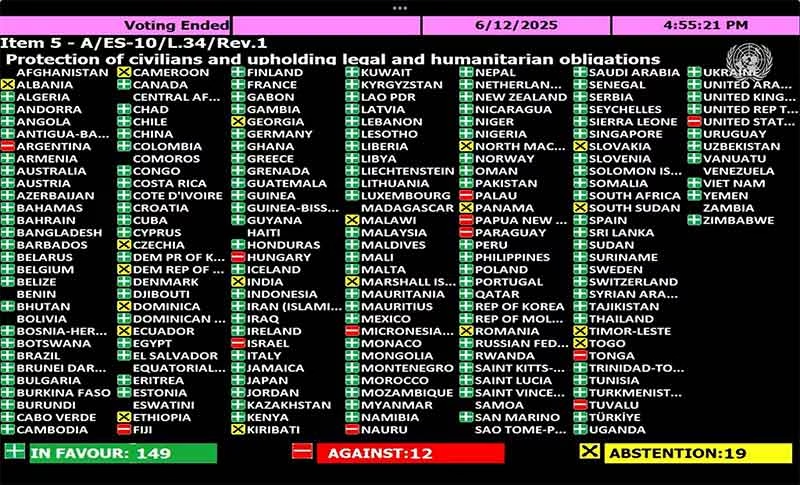
Within cricket’s revered and storied past, tears have long been the messengers of joy and sorrow. In November 2023, at Eden Gardens, as Temba Bavuma left the field in the wake of South Africa’s crushing World Cup semi-final defeat, every falling tear bore the pain of a nation’s crumbled hopes. Outrage flooded social media, with a veil of doubt cast heavily upon South Africa’s first-ever Black African skipper.
Today, those same tears speak of a different tale.
As the Proteas win their first-ever World Test Championship (WTC) mace by defeating Australia, Bavuma’s critics have retreated into silence. It is a silence that lingers in the halls of cricketing fame, rewriting every thought we had about leadership, perseverance and determination.
The Weight of Quotas and The Question of Merit
The 2023 World Cup had shown no mercy. The tournament kicked off with great optimism—South Africa had produced outstanding results, with a standout 229-run record-breaking win over England. However, as the stakes grew higher, the strain began to show. Bavuma’s own performance drew intense scrutiny with every match turning into a judgement of his captaincy skills.
The concern was not just about form on the pitch. As he started his new role as the first-ever Black captain of the Proteas, the impact extended far beyond cricket. Yet, it was precisely this significance which made his journey more difficult, casting a critical eye on his every action, every match and every decision on the field.
When the team hit a rough patch in the World Cup, social media dissected not only his captaincy but also undermined the rationale behind the quota system in South African cricket. The story was all too familiar: push for “merit-based selection” that deliberately overlooked years of systematic exclusion, calls for a “world-class team” that appears to have a distinctly specific idea of who they saw as the “ideal” team player.
Unlike others, whose dips were seen as temporary blips, Bavuma’s slumps were portrayed as flaws in the entire affirmative action policy. The quota system, therefore, was his solace and his burden—securing his spot in the line up while also eroding the credibility of his achievements in the eyes of his adversaries.
Yet, in the world of test cricket, Bavuma had other aspirations.
Where Endurance Becomes Expression
In the game’s most traditional and timeless format, where wisdom prevails over instincts and determination outshines natural talent, Bavuma became the leader he was meant to be. The shift was subtle yet undeniable—it unfolded in the hushed whispers of strategic genius, in moments of composure, where he was fearless in his convictions.
Former South African player Makhaya Ntini recently noted, “He is an excellent captain. Not many give him the credit he deserves. He reads the game well and bats well. Most importantly, he is a good man manager. Getting the best out of your teammates and getting their respect as leader,”
The statistics reveal a piece of the narrative—better win-loss differentials, more successful overseas outings, and a bowling attack discovering its bite in different environments. However, the true transformation took place in the silent gaps between the figures; inside the dressing room that transformed diversity into a winning formula where Bavuma’s captaincy showcased the inseparable link between transformation and exceptional achievement. The burden of the past turned into the bedrock for what was yet to come—accolades and success.
“As a team, when he is on the field you get a sense of calmness.” says Kyle Verreynne, the wicket-keeper batsman of South Africa. “The aura that he brings to the environment. Even in Bangladesh, he didn’t play at all but the calmness and level-headed approach he brought was awesome.”
What makes this accomplishment so impressive is not just the fact that South Africa won the WTC final—it is the process of reaching there. From the bitter taste of World Cup defeat, Bavuma has guided his team to the apex glory in Test cricket. The same hands that once held sorrow at Eden Gardens stood tall in cricket’s ultimate showdown—and conquered it. The skipper who weathered the storms of criticism now emerges as the mastermind behind South African cricket’s most significant achievement.
His rebuttal to the anti-reservation sentiment was not in promises but in performances. Despite a hamstring niggle, he notched up 66 vital runs in the fourth innings—a knock that delivered the WTC mace. As Twitter and other social media platforms erupted with judgements about quotas, he fostered a team culture that leveraged diversity into a towered asset. Every win that marked his leadership provided a compelling counterargument to those who viewed reservation as a barrier to perfection, who saw quota and merit as competing values. Here, he delivers a decisive proof: excellence and representation are not zero-sum pursuits—they are interconnected and interdependent.
The scars of the World Cup have not been healed yet—they have been shifted into something new. What skeptics of change viewed as a vulnerability, the pretext they used to condemn the system that lifted him up, has now become his standout quality. In piloting South Africa to cricket’s most coveted prize, he has left an indelible mark where the promise of representation elevates excellence and racial equity.
As the Proteas lifts their first WTC title, a profound symmetry runs through this tale. The team long accused as “chokers” has risen as the first to qualify into the finals—ultimately becoming its champions. The captain, whose tears were once questioned now leads by example, leaving even his hardest critics momentarily speechless.
In a way, history has given its final say. As it turns out, this is what makes this narrative so compelling—it is more than just a game, sportsmanship or victory. It is about the gentle yet unyielding influence of a leader who, when beset by the shadows of self-worth, chose to respond not with force, but with the calm, unwavering commitment to character and conviction, and an unshakeable faith in the abilities of those around him.
What once felt like a symbolic victory is now official. In the tears that evolved into victory, from insecurity to affirmation, Temba Bavuma has not only guided South Africa to the pinnacle of cricketing excellence but also redefined the boundaries of leadership.
And maybe, that is his most enduring legacy.
Subscribe to Our Newsletter
Get the latest CounterCurrents updates delivered straight to your inbox.
Akhila Krishnan is an interdisciplinary scholar with a Masters in Society and Culture from IIT Gandhinagar.
















































